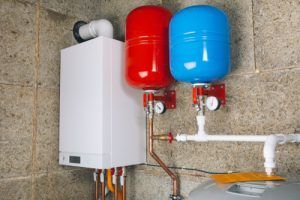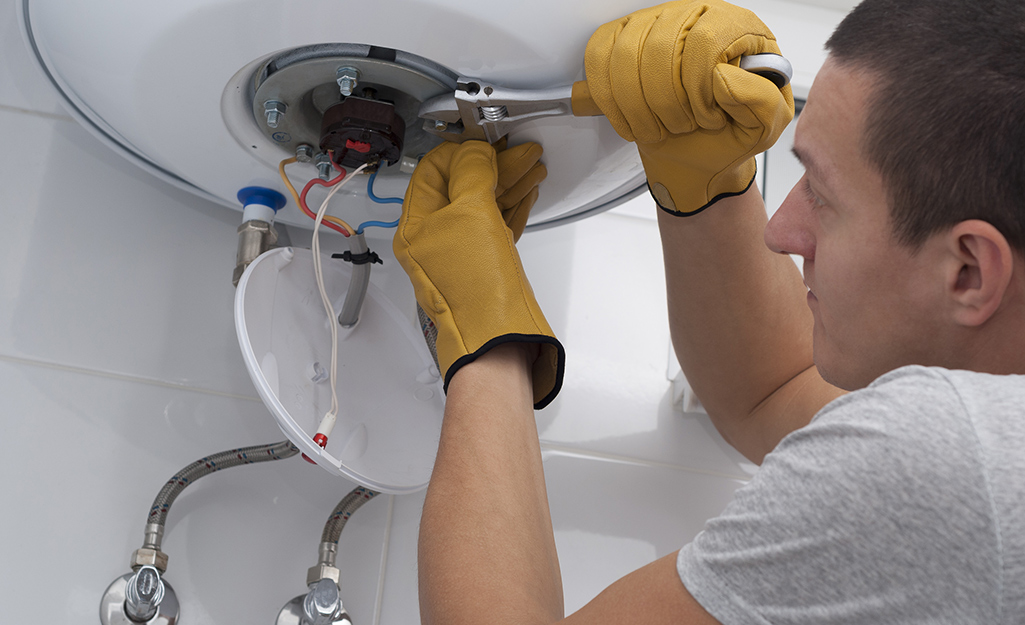Handling the Top Water Heater Crisis Situations
Handling the Top Water Heater Crisis Situations
Blog Article
The author is making a number of great annotation on the subject of Warning Signs You Need Water Heater Repairs in general in this great article further down.

A water heater is just one of the most crucial standard appliances that can be discovered in a residence. With water heaters, you don't need to experience the stress and anxiety of heating water manually whenever there is a requirement to take a bath, wash, or the meals. Nonetheless, there is constantly an opportunity that your water heater would act up similar to most mechanical devices.
It is important to note any little breakdown and also tackle it quickly before things leave hand. The majority of times, your water heater begins to malfunction when there is an accumulation of debris as a result of continual usage. As a safety measure, regular flushing of your water heater is suggested to prevent debris buildup and also stop functional failing.
Common water heater emergency situations as well as just how to handle them
Inadequate hot water
It might be that the water heater can't support the warm water demand for your house. You could update your water heater to one with a bigger capability.
Changing water temperature.
Your water heating unit can start creating water of different temperature levels generally ice hot or cold warm. There might be a need to change either the home heating or the thermostat system of your water heater.
Leaking hot water heater storage tank.
In this situation, you need to transform off your water heating system, permit it to cool down, as well as very carefully look for the resource of the problem. At times, all you require to do is to tighten up a couple of screws or pipe connections in situations of small leakages. If this does not work and the leak lingers, you may need to use the solutions of a specialist for an appropriate substitute.
Blemished or odiferous water
When this happens, you require to recognize if the concern is from the water or the tank resource. If there is no amusing smell when you run cool water, then you are certain that it is your water heating unit that is damaged. The odiferous water can be triggered by rust or the build-up of bacteria or sediments in the water heating unit container.
Conclusion
Some homeowners overlook little warning and minor faults in their hot water heater unit. This just leads to further damages and also a possible complete breakdown of your appliance. You must take care of your hot water heater mistakes as soon as they come near avoid more expenses as well as unnecessary emergency troubles.
With water heaters, you do not require to go with the tension of home heating water manually every time there is a requirement to take a bathroom, do the washing, or the dishes. It may be that the water heating system can not sustain the hot water demand for your apartment. Your water heater might start producing water of different temperatures usually ice cool or hot warm. If there is no funny scent when you run cool water, then you are specific that it is your water heating system that is malfunctioning. The smelly water can be triggered by rust or the buildup of microorganisms or sediments in the water heating system storage tank.
Water Heater Burst: Why This Happens And What To Do Next
Water Heater Explosion Warning Signs
Since storage water heaters are made of metal and store large volumes of heated water, they carry an increased risk of leaking or even exploding as they begin to rust at the fittings and seams over time. If the thermostat controlling the water temperature within the tank is faulty, or if mineral buildup inside the water heater prevents the thermostat from sensing the water’s temperature correctly, the water could become overheated. This will expand its volume within the tank, causing it to press at the tank’s fittings and seams. If these fittings and seams are rusted or corroded, the pressure could result in a leak or even an explosion.
Here are some risk factors and warning signs of an increased risk of water heater leak or explosion:
Your water heater is more than 10 years old. Your water heater makes clanking, banging or rumbling noises as it heats up, indicating that sediment has built up and hardened inside the tank. There is visible rust on the outside of the water heater, especially located at the pipe fittings or the seams that run down the tank. There is rusty water coming from your water heater, indicating that there may be rust building up inside. Your water heater is leaking, which could indicate either a crack somewhere in the tank or a malfunctioning temperature-and-pressure (T&P) relief valve. What To Do When Water Heater Leaks
If you find water dripping or seeping out of your water heater, or pooling around it, it means your water heater is leaking. If you find a leak, it may be best to call a plumbing professional to diagnose the problem and determine how best to handle it. If you choose to tackle it on your own, there are a few things you can do.
TURN OFF THE POWER
Next, shut off the power to the hot water tank at your home’s electrical breaker box. If you don’t shut off the power, the heating elements within the tank could continue to stay hot, which could pose a fire risk.
If you have a gas-powered water heater, you’ll also need to shut off the gas line leading into the tank.
FIND THE LEAK
Now it’s time to determine where the leak is coming from. Likely locations are the T&P valve, the drain valve or one of the pipes or fittings that feed into the top of the tank. If you see any rust or corrosion on the outside of your water heater’s tank, pipes or fittings, these could also be the source of the leak.
REPAIR THE LEAK
Once you determine the source of your water heater leak, you’ll have a better idea of what steps you need to take to fix the problem. It may be a simple fix—such as using a wrench to tighten fittings or replacing the T&P valve—but it may be something more complicated. You may even need to drain the tank, remove the water heater and install a new one.
https://www.abchomeandcommercial.com/blog/water-heater-burst/

As a keen reader on Is Your Water Heater Leaking?, I was thinking sharing that piece of content was really useful. Appreciated our posting? Please share it. Help somebody else locate it. I love reading our article about Common Hot Water Heater Problems.
We're here for you, dial! Report this page